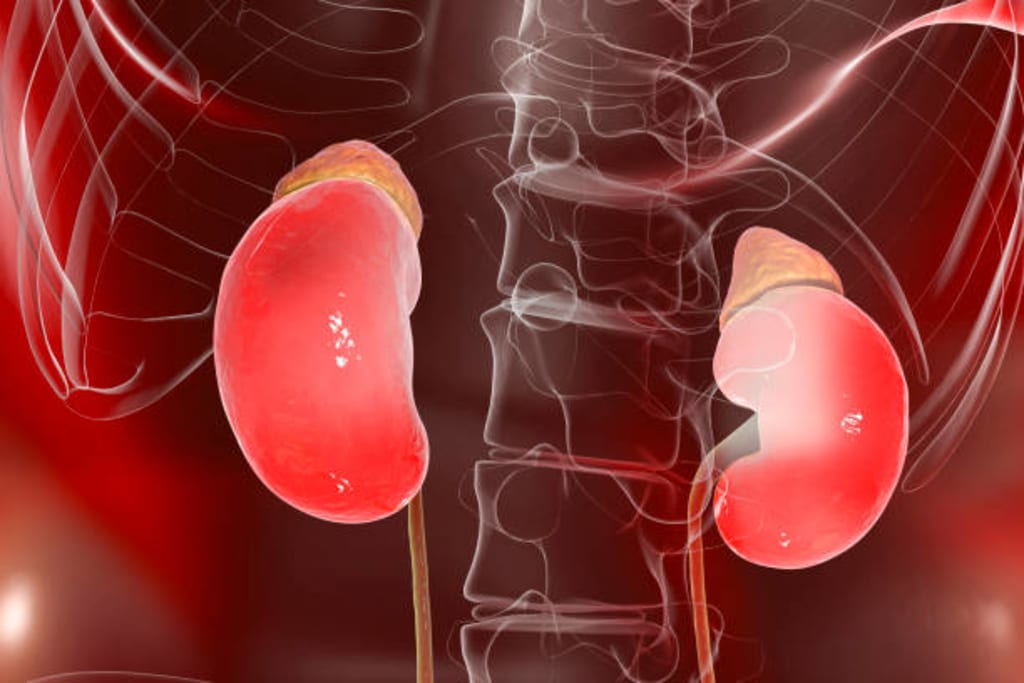10 Signs You May Have Kidney Disease And How To Treat It
Stem Cell Therapy For Kidney Disease

Two bean-shaped organs are the kidneys. The kidneys are roughly the size of a fist each. Urine is produced after your kidneys filter excess water and wastes from your blood.
Kidney disease indicates that your kidneys have been damaged and are no longer able to filter blood properly.
If you have diabetes or high blood pressure, you're more susceptible to kidney damage. Kidney transplantation or dialysis are two options for those who have kidney failure.
Acute renal damage, kidney cysts, kidney stones, and kidney infections are some of the other disorders that can affect the kidneys.
10 Signs You May Have Kidney Disease
1- You're feeling tired, have less energy, or can't seem to concentrate
A significant drop in kidney function can result in a buildup of toxins and pollutants in the bloodstream. This can make people fatigued, and weak, and make it difficult to concentrate. Anemia, which can induce weakness and weariness, is another effect of kidney disease.
2- You're having problems falling asleep
Toxins stay in the circulation rather than exiting the body through urine when the kidneys aren't filtering adequately. This can make sleeping difficult.
Obesity has also been linked to chronic kidney disease, and sleep apnea is more common in chronic kidney disease patients than in the general population.
3- Your skin is dry and irritated
Kidneys that are in good health perform a variety of critical functions. They assist your body remove waste and excess fluid, helping form red blood cells, keeping your bones strong, and keeping the appropriate amount of minerals in your blood.
Dry, itchy skin can be an indication of mineral and bone illness, which is common with severe renal disease and occurs when the kidneys are no longer able to maintain the proper balance of minerals and nutrients in the blood.
4- You feel compelled to urinate more frequently
If you're urinating more frequently, especially at night, it could be an indication of renal illness.
When the kidney filters are compromised, the urge to urinate can become stronger. In males, this can sometimes be an indication of a urinary infection or an enlarged prostate.
5- Your urine has blood in it
When kidneys filter wastes from the blood to make urine, they usually keep the blood cells in the body, but when the filters in the kidneys are broken, the blood cells can "leak" out into the urine.
Blood in the urine can indicate a tumor, kidney stones, or an infection, in addition to kidney disease.
6- Your urine has a frothy appearance
Excessive bubbles in the urine, especially those that require multiple flushes to disappear, suggest the presence of protein in the urine.
Because the common protein found in urine, albumin, is the same protein found in eggs, this foam may resemble the foam you see when boiling eggs.
7- Your eyes are puffy and swollen regularly
Protein in the urine is a symptom that the filters in the kidneys have been damaged, allowing the protein to flow into the urine.
Your kidneys may be leaking a high amount of protein into the urine rather than storing it in the body, causing puffiness around your eyes.
8- Your feet and ankles are swollen
Reduced renal function can cause salt retention, which causes swelling in the feet and ankles.
Heart illness, liver disease, and chronic leg vein problems can all cause swelling in the lower limbs.
9- Loss of appetite
This is a very common symptom, but one of the explanations could be a buildup of toxins due to decreased renal function.
10- Your muscles are strained
Impaired renal function can lead to electrolyte abnormalities. As Muscle cramping can be caused by low calcium levels and poorly managed phosphorus.
Alternative Treatment Method Using Stem Cell Therapy
Stem cells have the remarkable ability to self-renew. As a result, stem cells are used to replace or repair tissues that have been destroyed. This is why stem cells may be useful in the treatment of kidney failure.
There has been a lot of research on the impact of stem cells in regenerating and restoring the function of a damaged kidney.
Over the last few decades, scientists have made significant progress in understanding how stem cells can be used to treat a variety of medical diseases, including kidney failure.
How It Benefits Kidney Disease
Umbilical cord stem cells can differentiate into a variety of stem cells. These cells can become mesangial cells after being integrated into renal tubular cells.
Furthermore, by discharging growth stimulants, these cells reinvigorate the kidney's stem cells and encourage the survival of renal cells, so initiating the natural recovery process.
Stem cell therapy is the most advanced and effective treatment for kidney failure, and it can significantly decrease or even stop the course of CKD.
Stem cells are used in modern stem cell therapies to repair and regenerate damaged renal cells and restore kidney function to delay the course of the disease.
If you have CKD or another chronic ailment, contact Shifa Clinic for the best stem cell treatment.
To schedule a free consultation with a certified stem cell therapist, send an email to [email protected].
About the Creator
Health Blogs
Digital Healthcare Markter and Researcher






Comments
There are no comments for this story
Be the first to respond and start the conversation.